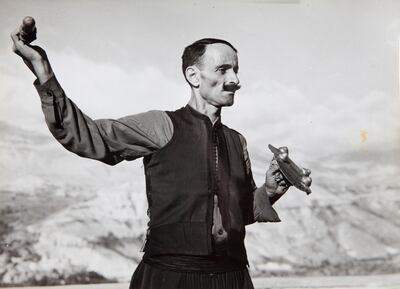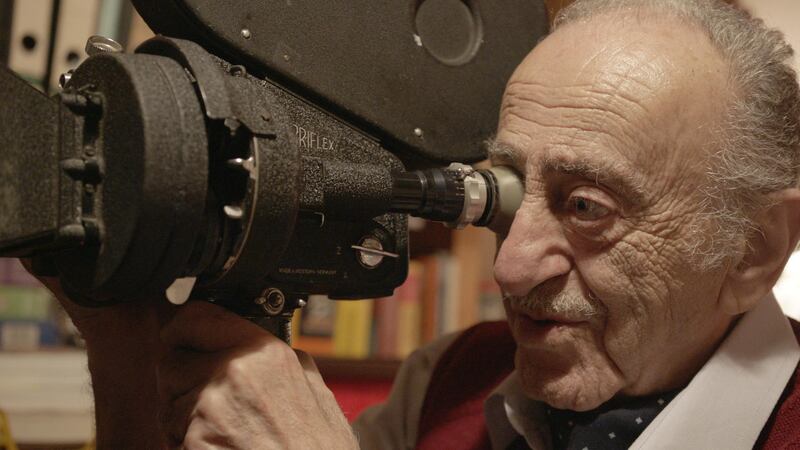It's not a fun time to be a Beiruti. Or a city dweller almost anywhere else, for that matter. Lebanese citizens – along with roughly one in five people around the world – are on indefinite lockdown as the Covid-19 pandemic continues to spread. But offering a small ray of light in dark times – particularly for cinephiles – is a programme of free online film screenings that is allowing those stuck at home to lose themselves in features, shorts and documentaries by some of Lebanon's most interesting independent directors.
Myriam Sassine, a producer at the Lebanese arthouse company Abbout Productions, had the idea to start sharing films online after she saw an independent Lebanese filmmaker do the same with his own work. She says that films offer an escape for people, especially those who are isolated and scared, allowing them to engage with big issues without triggering the anxiety that can come from scrolling through media coverage of the pandemic.

“Films and artworks in general do explore the meaning of life and the existential questions, and I think right now a lot of people have existential questions because the whole world has stopped and our lifestyle as it was has stopped. “So turning to books and films and artworks is a [way] of pushing you to reflect on what happened historically and take lessons from the past or from philosophers or artists.”
Since around mid-March, Abbout Productions has been hosting its films, one at a time on Vimeo, by providing details of how to log in and watch them on its social media platforms. Each can be accessed with English or French subtitles and remains online for three days before it is replaced with a new title.
The free programme kicked off with Myriam El Hajj's 2015 documentary A Time to Rest, in which the director questions her uncle and his friends, who fought in Christian militia groups during the civil war, about their old loyalties and outdated causes. To Sassine's surprise, it was watched more than 3,000 times in three days.
Next was Lebanon Factory, a compilation of four short films by eight directors exploring different facets of life in Lebanon, followed by Panoptic, a documentary by Rana Eid exploring hidden army-controlled detention centres. The film was banned from cinema screens in Lebanon after she refused to remove a line of her voiceover that offended the censorship bureau. Both films also attracted several thousand viewers.
Sassine says that sharing the films online has allowed them to reach a far broader audience than is usual for films that circulate primarily at film festivals.
“I really feel like we’ve discovered a new audience for our films, which … broadcasters and platforms usually tell us are less commercial,” she says, adding that the thousands of viewers were based not only in the Arab world but in countries including Somalia, Lithuania, Hungary and Belarus. “We have no clue how it reached them,” she laughs.
She has programmed roughly ten films initially and plans to keep the programme running as long as possible. Each new title is announced online on the day it launches.

On Thursday, the production company released two films simultaneously, both available to view until Tuesday, March 31. Ila Ayn? is an famous work of Lebanese cinema. Directed by one of the pioneers of the industry, Georges Nasser, it was the first Lebanese film to be selected at the Cannes Film Festival, where it screened in 1957. Set in a mountain village, the film explores emigration, family and identity, themes that continue to resonate with Lebanese audiences today.
Abbout Productions spearheaded a restoration of the film in 2017, when it was screened at Cannes to mark 60 years since its release. To accompany the vintage feature, the production company has also released an award-winning 2017 documentary, A Certain Nasser, directed by Badih Massaad and Antoine Waked, which delves into the filmmaker's life and legacy.
"For me here now, stuck, I am also watching films and reading, and those are the moments when I feel most relaxed, even when watching a film like Contagion," says Sassine, whose reference of Contagion comes with no surprise. The film, which is about a global pandemic, has topped download charts around the world in recent weeks.
“The [focus] is on medical and food supplies, which are the most essential elements right now, but you also need to feed your soul to be able to go on," she adds. "If we, artists, producers, filmmakers can contribute to help others that’s also good. It’s also needed.”
To find out what films are available for viewing on Vimeo, visit www.twitter.com/AbboutProd






